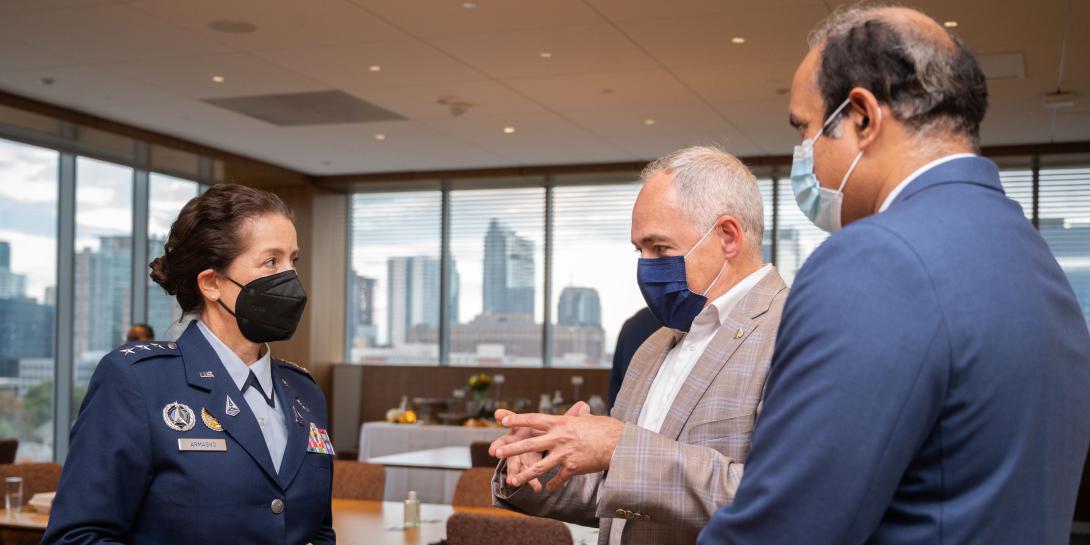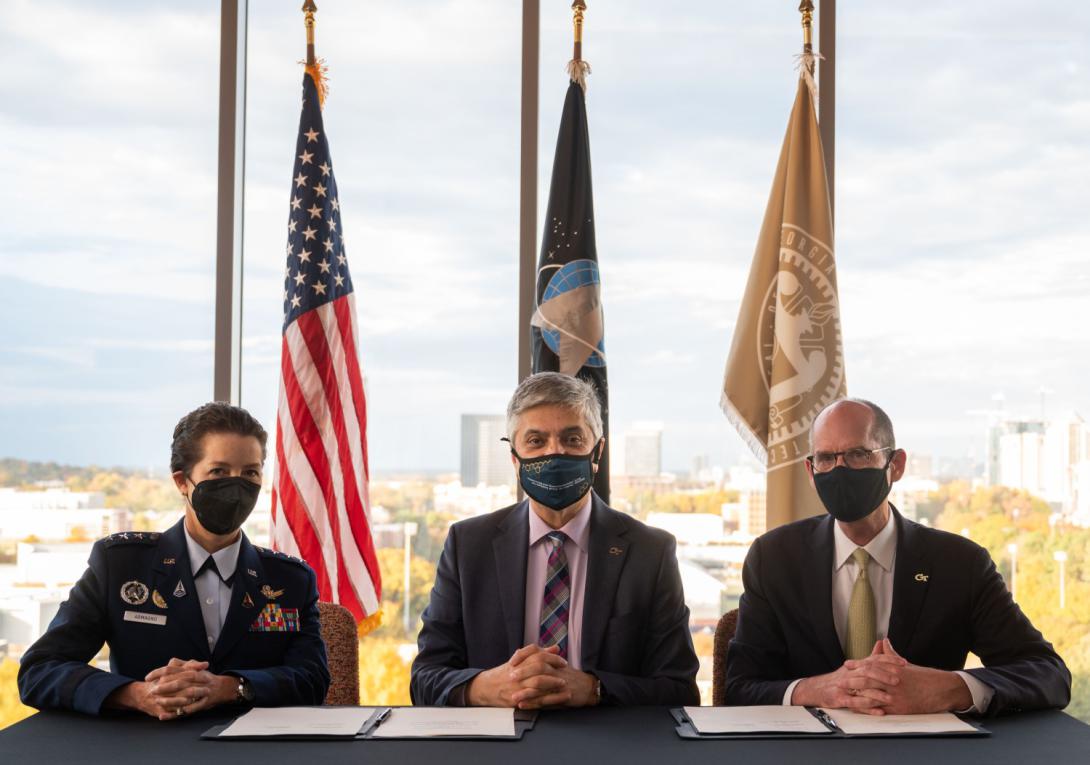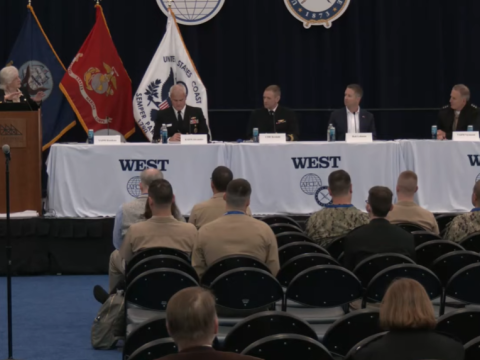Space Force Aligns its Academic Communities
The two-year-old U.S. Space Force is growing its research and development community through partnership agreements with select U.S. institutions. Following the latest memorandum of understanding executed on Veterans Day with the Georgia Institute of Technology in Atlanta, the Space Force’s cadre of academia partners now stands at 11 universities.
The Space Force’s University Partnership Program includes:
- Georgia Institute of Technology (Georgia Tech),
- Howard University,
- Massachusetts Institute of Technology,
- North Carolina Agricultural and Technical State University,
- Purdue University,
- University of Colorado at Boulder,
- University of Colorado at Colorado Springs,
- University of North Dakota,
- University of Southern California,
- University of Texas at Austin, and
- University of Texas at El Paso.
Lt. General Nina Armagno, USAF, U.S. Space Force director of staff, applauded the latest entrant to the program. “At the heart of the Space Force’s University Partnership Program is the need to advance our science and technology to build the next generation of space capabilities, while developing the workforce of the future,” she said at the signing ceremony at Georgia Tech. “With its reputation as a leader in cutting-edge aerospace research, we are confident that Georgia Tech will be an outstanding partner.”
Georgia Tech already is pursuing significant research in hypersonics as part of the University Consortium for Applied Hypersonics, a program funded by the Joint Hypersonics Transition Office and the Undersecretary of Defense for Research and Engineering. With the addition to the Space Force’s partnership, the university is committed to helping drive technological advancements for the service.
“We are looking forward to robust engagement with the Space Force where we collaborate on creating new technologies that support national security as well as provide education opportunities for guardians and civil servants to continue their professional development," said Mark Costello, William R.T. Oakes Professor and Chair of the Daniel Guggenheim School of Aerospace Engineering at Georgia Tech.
The service is working with the schools to outline specific implementation details with the goal of addressing the program’s four main priorities:
- Establish opportunities for world-class research, advanced academic degrees, and workforce and leadership development for USSF guardians;
- Identify and pursue research areas of mutual interest with member universities, individually and collectively;
- Establish scholarship, internship and mentorship opportunities for university students and ROTC cadets; and
- Recruit and develop diverse officer, enlisted and civilian guardians with a particular focus on science, technology, engineering and mathematics.
According to the Space Force, the universities were selected to be in the program based on four criteria: the quality of STEM degree offerings and space-related research laboratories and initiatives; the strength of their Reserve Officers' Training Corps, or ROTC program; their diversity of student population; and degrees and programming designed to support military, veterans and their families in pursuing higher education.
This summer, the service announced the University Partnership Program, during a partnership signing event August 9 at the University of North Dakota attended by the Space Force’s chief of space operations, Gen. Jay Raymond, USSF, and the university’s president, Andy Armacost.
“The Space Force faces some of the toughest challenges in engineering, science, and technology,” Gen. Raymond stated in August. “Space is hard. We need our nation’s brightest minds working to help us tackle these problems. That is why we have established the University Partnership Program to harness the innovation at universities across our country.”





Comments